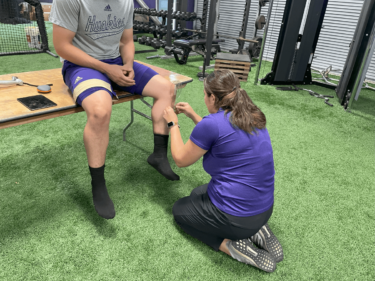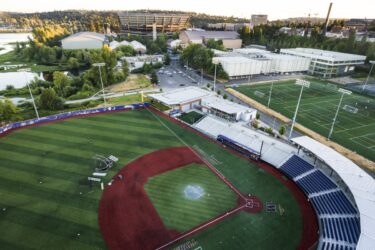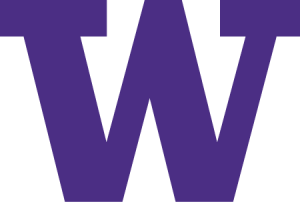Sports Residency
Mission
To support the life-long pursuit of athletic achievement for all individuals by improving the management of sport-related injuries by developing exceptional physical therapy practitioners, educators, and leaders in the field.
Our goals for the resident are to:
- Advance critical thinking and reasoning skills related to clinical decision-making and athlete management
- Apply foundational knowledge, clinical reasoning, and technical skills with precision to care of athletes
- Disseminate clinical knowledge and skills related to care of sport-related injuries
- Demonstrate leadership in the sports medicine arena
Program Overview
The University of Washington Division of Physical Therapy, in conjunction with Bespoke Physical Therapy , University of Washington Athletics and Seattle University Athletics, is proud to offer a 12-month Sports Residency Program to physical therapists interested in pursuing a career treating athletes. The Sports Residency program is in the process of accreditation by the American Board of Physical Therapy Residency and Fellowship Education (ABPTRFE) (expected date: September 2025).
The program is also designed to prepare residents for successful completion of American Board of Physical Therapy Specialties examinations in sports physical therapy. This is a 12-month program beginning on July 01 each year. The program has a heavy emphasis on evidence-based practice and data-informed clinical decision-making. Residents will be expected to participate in teaching, quality improvement, and various sports coverage. Opportunities to participate in sport-related research are available.
See the Sports Residency Structure page for full programmatic details.

Residency Curriculum
See the Sports PT Curriculum Birdseye View (PDF File)
Compensation and Benefits
Program participants are employed full-time by the UW, including a benefits package (paid time off, medical, dental, and retirement).


